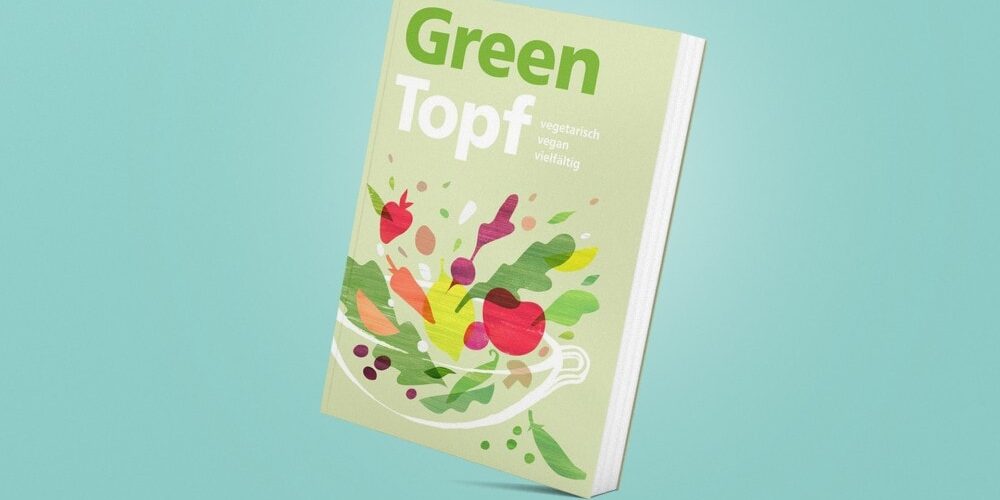"Jonathan's favorite recipe goes down well!"

How can we find out about sustainable shopping options and preparation methods? What educational programs are available for children, young people and adults in this area? What role do WAH lessons play in secondary school (economics, work, household)? And are old recipes the key to sustainable nutrition? The following experts discussed these questions with us at the Impact Hub Bern on November 16, 2022.
- Daniel Ruoss, Lecturer at the hotel management school in Thun, specialist teacher for kitchen/F&B
- Eugenia Harms, Research assistant at the BFH-HAFL, Department of Food Science & Management
- Franziska Stöckli, Initiator of the "Greentopf" teaching aidPrimary and secondary school teacher
Definition of a "sustainable diet"...
Healthy enjoyment is the key to a sustainable diet. Our diet is sustainable if it is based on the Planetary Health Diet and we consume as much fresh and plant-based food as possible. But how do we get there?
...and how we can win more people for it
Most people are sensitized through enjoyment and their sensory perception (smell, taste). If you want to communicate nutritional and sustainable topics, the admonishing finger is useless - we need to communicate positively and focus on enjoyment and taste: The diversity in the plant world, for example, is much greater than in the animal world. That's why the variety of cooking techniques is not decreasing with more plant-based alternatives and ingredients - quite the opposite!
With the principle organic, regional and plant-based If consumers stick to these guidelines when shopping, we are a big step closer to the goal of a sustainable food system. When it comes to consuming highly processed foods, it becomes more complicated to eat sustainably. However, it is not just individuals who are called upon - laws are needed, because top-down measures are ultimately also implemented. Financial incentives for a predominantly plant-based diet must also be created.
Last but not least, it is crucial that we start with the youngest children, because a sustainable diet begins with children. We also need to involve parents, for example when it comes to increasing the proportion of vegetables in their diet.
What do the schools actually do?
Nowadays, schools play an important role and many children eat there several times a week. The conditioning of what a child likes to eat therefore no longer only occurs at home, but also at school or in after-school care. In schools, however, lunch is usually no longer cooked on site, but only warmed up, as space is limited. The staff must therefore at least know how to prepare the food beautifully and aesthetically. In the day schools, attention is actively drawn to the problem of food waste: parents are encouraged to give their children boxes or Tupperware.
A specific subject ESD (Education for sustainable development) is not included in Curriculum 21, the timetable is too dense for that. ESD is an attitude that can be introduced into every subject and a culture that must be lived. Teachers need to be specifically introduced to these topics. WAH lessons (economics, work, household) must focus more on sustainable preparation methods and plant-based products - there is still some catching up to do here, especially in the training of prospective teachers.
Cooking tips for children and with young people
The recipes in Franziska Stöckli's green pot are developed in a participatory way, i.e. together with the children. Most children really enjoy cooking a recipe from a colleague: "Jonathan's favorite recipe goes down well," says Franziska Stöckli. A good mix of education and entertainment (edutainment) is important, this is how we attract the attention of children and young people. It is very important to pick up the children in their own world. Imaginative stories are needed: If we compare kale chips with falling autumn leaves, even the most skeptical children will pick it up!
Why our food is becoming sustainable
- The green pot has already replaced the TipTopf as the standard work in many schools. With the help of this teaching aid, children and young people are sensitized and can make sustainable consumption decisions in the future.
- A healthy lifestyle is the trend - in recent years, the proportion of under 25-year-olds who do not drink alcohol has doubled from 11% to 22%. This awareness also has a positive effect on a sustainable diet.
- The margins on meat dishes are not that good. Plant-based dishes are attractive in terms of margins. It therefore makes perfect economic sense to offer less meat and more plant-based menus.
The FoodTalk is jointly organized by Crowd Container, Bear hunger, BENE - Association for Sustainable Development at the University of Bernthe Nutrition Forum Bern and the BFH-HAFL - School of Agricultural, Forest and Food Sciences.
Become part of the crowd container community
With your contribution, we stay tuned. Whether at our various events, in direct discussions with producers or in our videos: We investigate your questions and change the way food is produced and traded today - always with the aim of getting closer to our vision of a diverse, climate-positive agriculture. Thank you for your support!